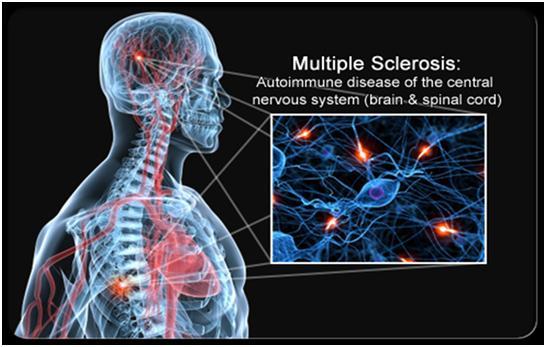Source:
Dr. HATEM SAMIR M. SHEHATA.
PROFESSOR OF NEUROLOGY - CAIRO UNIVERSITY
NEVIN M. SHALABY.
PROFESSOR OF NEUROLOGY - CAIRO UNIVERSITY
Dr. LOBNA ELNBIL
PROFESSOR OF NEUROLOGY- AIN SHAMS UNIVERSITY
What Is Multiple Sclerosis (MS)?
MS is a chronic disease that damages the myelin sheath in the spinal cord and brain, as well as the optic nerves. Sclerosis means scarring, and people with MS develop multiple areas of scar tissue in response to the nerve damage. Depending on where the damage occurs, symptoms may include problems with muscle control, balance, vision, or speech.
 |
 |
What Causes MS?

• The roots of MS remain mysterious, but doctors see some surprising trends.
• It's most common in regions far from the equator, including Scandinavia and other parts of Northern Europe. These areas get less sunlight, so some researchers believe that vitamin D (the “sunshine vitamin”) may be involved.
• Researches suggest a possible link between vitamin D deficiency and autoimmune disorders, but studies are ongoing.
• Genetics appear to play a role as well
Who Gets MS?
MS is at least twice as common in women as it is in men. While it can strike people of any race, whites appear to be most at risk. The chances of developing the condition are highest between ages 20 and 50.
